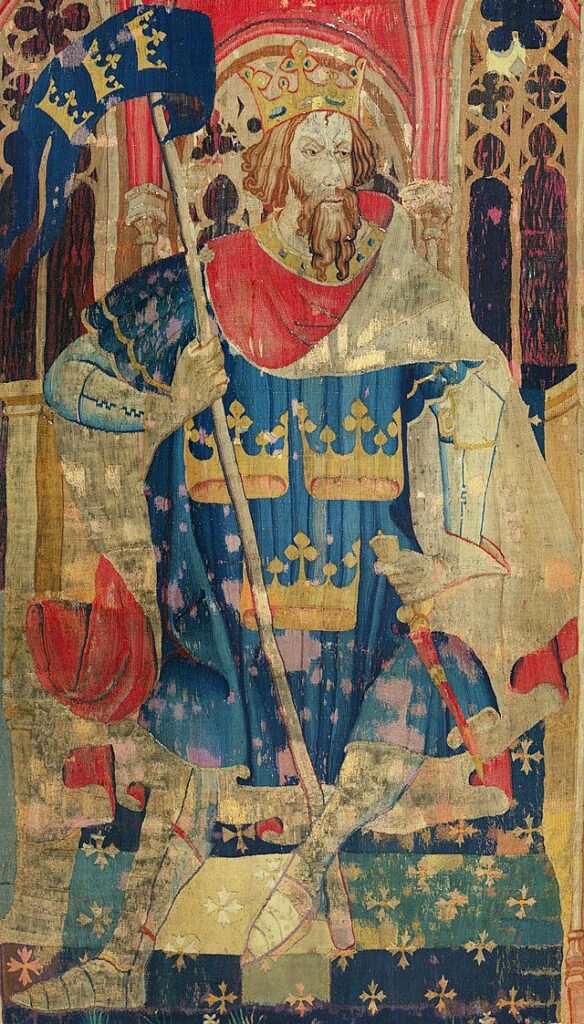You know what Deng Xiaoping said:
“It is glorious to be rich.”
So why do we seem so invested in keeping our PCs broke?

Carousing rules have become ubiquitous in the OSR scene. A second layer of Carousing XP often buttresses Gold-for-XP schemes, with the aim of keeping players perpetually hungry for more loot. To quote Kelsey Dionne’s rather fantastic Shadowdark:
“Carousing allows PCs to gain XP fast, but they’ll soon need to go adventuring again to replenish their empty pockets. Wealth is a fleeting prize.”
– Shadowdark, p. 269
But why is that? What do we really gain by keeping PCs hungry? What if we fed them instead?
Pulp vs Myth
Early Dnd-oids drew a ton of inspiration from pulp magazine heroes like Conan the Barbarian. These perpetual outsiders were driven by a constant need for coin; whatever was earned was spent. After all, life was short and brutal. Conan’s world is full of snake-cults and low on good investment opportunities. Why not spend it all? You can’t take it with you.
But this isn’t fantasy’s default mode.
From our very earliest stories, our fantasies have centred on the elite: think of Gilgamesh, King Arthur, and Odysseus. Their wealth doesn’t preclude adventure; it motivates it. Protecting what they have, reclaiming it, returning to it — these are all plot lines that only work when the PCs are loaded. In King Arthur’s case, his worldly success supports his quest for the ultimate spiritual treasure.
Why not be Rich?
There are two reasons many DMs shy away from letting their PCs get rich. Both boil down to balance.
The first reason is magic items. Allowing PCs to turn cash into magic items can quickly allow them to become much more powerful than their level suggests. This isn’t a huge deal in old-school games (indeed, it softens the lethality a bit), but in 5e, where balance is key and magic items aren’t really factored into it, it can crash a campaign.
The second reason is hirelings. The thinking goes that money means you can hire someone to deal with your problems for you. Why storm a dank, dangerous dungeon when you can hire some expendables to do it for you? After all, that’s the economic logic that led to your PCs having all this money in the first place, right?
These are easily defused. First off, don’t allow players to buy magic items; it makes them less special, has weird world-building implications, and encourages robbing NPCs. The magic item shop belongs in video games; keep it out of your TTRPG! Secondly, encourage players to think of their adventures as opportunities to earn glory, increasing their legitimacy amongst their underlings. The more power, the more responsibility; all those porters, linkboys, and shield bearers need to know you can still deliver, or they’ll slip away into banditry.
Those are the potential downsides and how to fix them. What are the upsides?
Leader
Use profitable properties to simplify hirelings. Don’t worry about how much gold things cost; try something like this instead:
DM: “The Prince thanks you, and bequeaths you your promised reward: a vineyard worth 1500gp a year.”
PC: “Sweet! That should pay for a guy to hold my torch and another to deal with the pack horses and their feed.”
DM: “Sounds good to me. It’ll still produce a little profit, but not a ton. Enough to pay for incidentals, like rations and arrows.”
Land for service arrangments aren’t only more medieval-coded than cash for service; they also require less fiddly tracking. It also grounds the PCs relationships with these NPCs. You know where each other lives, and if they survive for a few adventures, they’ll end up becoming important parts of the party’s downtime, as well as their adventures.
Mover, Shaker
Every hireling is an opportunity for a memorable NPC. Every damageable investment is an ironclad plot hook. Every act of charity is a chance to show and develop character, leading to more memorable roleplay.
You know all this.
But let me suggest that the real benefit of a huge pile of cash isn’t actually about the player characters at all; it’s about the world.
World Building is a DM’s prerogative. Players are often lucky if they can contribute a detail or two about their character’s hometown. Mass sums of money change this in a way almost no magic items could. Rich PCs have the capacity to change the landscape with bridges and dams. They can enlarge villages or hollow them out. They can bankroll politicians, fund their favourite cults, and create elaborate bases.
Consider the chantry. This staple of medieval religious practice was fairly simple. A noble gentleman would spend his spry years terrorizing a foreign (or domestic, who can be picky these days?) countryside, stealing everything that wasn’t nailed down. Once he grew old and mortality approached, he might spend this lucre establishing or contributing to a chantry. This was a bequest of cash that would pay for a monk or priest to pray for the blood-stained benefactor, often multiple times a day and often for decades (or even longer) after the death of the donator.
Establishing these legacies, these long-lasting changes to the landscape, gives your players a chance to invest in your campaign world emotionally. I guarantee you: your players will remember the stupid wooden bridge they built a lot longer than they’ll remember the ancient, mile-long bridge you put there for them to find.
Let Them Eat Cake
And remember, it’s fun to succeed. As a DM, it can be easy to focus on the mysteries and challenges your players face (I know Gabriel is always telling me my modules need more treasure). Don’t forget the money! Make them work for it, then let them spend it. The bigger, the better! The more, the merrier! Lean into the power fantasy and ask your high-level players: what would they do if they had the money to change the world?
“I hate almost all rich people, but I think I’d be darling at it.”
– Dorothy Parker
